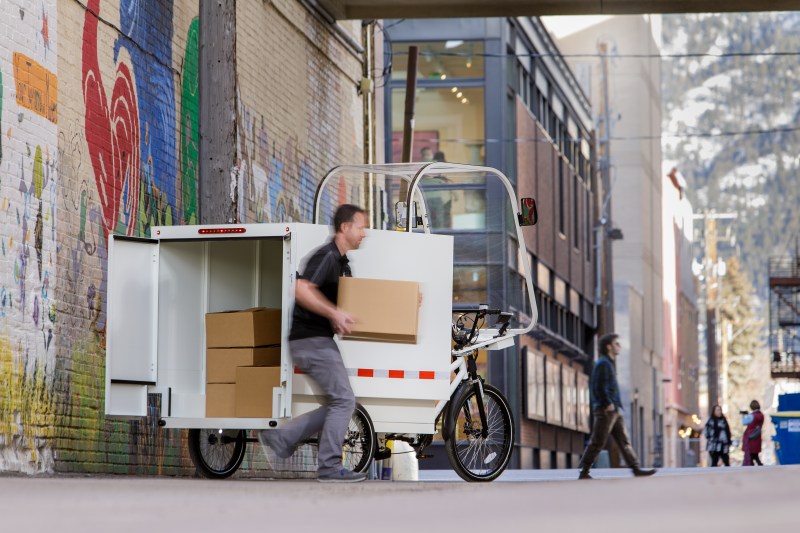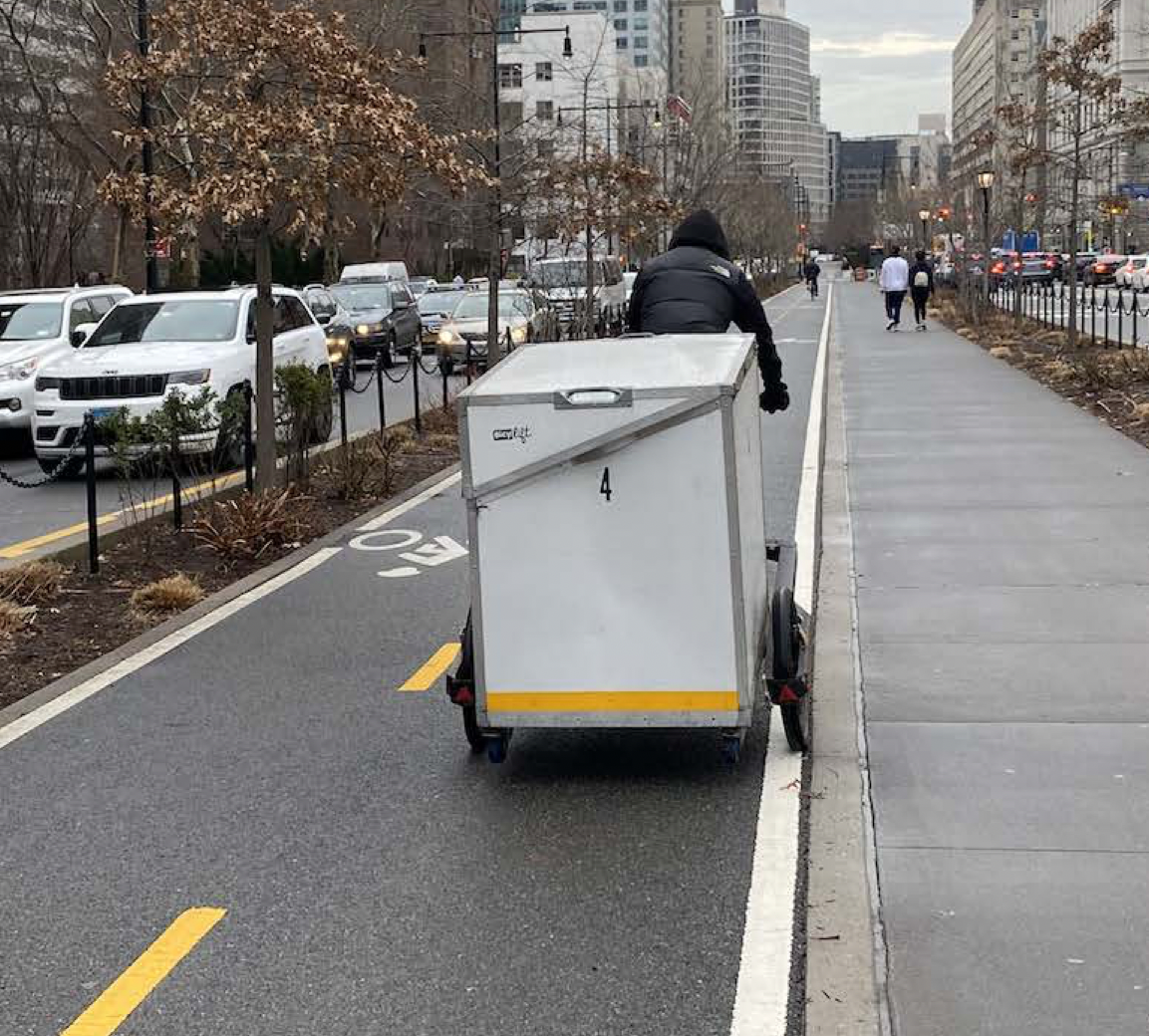V-DAY SPECIAL: Bigger Cargo Bikes and Last-Mile Warehouse Regulation is a Match Made In Heaven

Strawberries and Cool Whip. The Macho Man and Miss Elizabeth. Right-sized cargo bikes and regulating emissions at last-mile warehouses. All of these go together in this season of love — but New York State still needs to make that last one happen.
On the one hand, the city sorely needs to integrate cargo bikes into its online retails addiction — to end the scourge of dangerous sprinter vans double parking on residential streets and major thoroughfares.
That’s where last-mile warehouses come in. The facilities, which provide the goods to be delivered, are proliferating across the city and bringing with them issues of auto pollution and truck traffic.
A pair of bills in Albany tackle each issue separately — but are a match made in heaven, according to advocates and insiders.
One proposal, from Assembly Member Marcela Mitaynes (D-Brooklyn), would allow the state Department of Environmental Conservation to regulate the “indirect emissions” from last-mile warehouses, or emissions that are associated with transportation into and out of the warehouses.
The bill would, among other things, require current and future last-mile warehouses to create plans to reduce transportation-related emissions through the use of zero-emissions vehicles, like cargo bikes for example.
Its possible suitor is State Sen. Jessica Ramos’ four-year-old proposal to expand the size of legal cargo bikes from 36-inches to 48-inch-wide, providing an essential counterpart to an Albany effort to regulate emissions tied to last-mile delivery warehouses.
Put together, the bills offer an opportunity to tie the industry’s growth to low emission trips, according to environmental activists who’ve worked to reduce emissions associated with the proliferation of warehouses in New York City.
“The bills complement each other,” said New York City Environmental Justice Alliance Transportation Planner Kevin Garcia. “The indirect source rule would create a review of emissions from all e-commerce warehouses but it also looks to reduce and mitigate the emissions from these warehouses. We see cargo bikes really being a part of that, but we need to be able to have bikes that have greater capacity, because what we want them to do is to replace these delivery vans that are zooming through our residential neighborhoods when they’re going to or leaving the facilities.”

Momentum is building for both proposals.
Mitaynes first introduced her bill last year, but this year picked up a state Senate sponsor in the form of Deputy Majority Leader Michael Gianaris, which could help the bill’s odds in the upper chamber.
Ramos’ cargo bike bill, meanwhile, made it through the state Senate Transportation Committee this year for the second straight year, and is expected to pass on the full floor of the state Senate like it did last year. The bill is sponsored by Assembly Member Chantel Jackson and has been officially introduced into the Assembly Transportation Committee, where it passed last year but stalled out in front of the full Assembly.
Mitaynes’s office said that she hopes her warehouse emissions bill can make it through the Assembly this year and give the last-mile regulation effort a boost.
“You want to make sure that we’re able to mitigate the environmental impacts that these facilities already create in our communities, because a lot of them are being built in low-income communities of color that have extremely high asthma rates,” said Emmit Mendoza-Gaspar, Mitaynes’s chief of staff.
“If Jessica’s bills gets passed and signed into law it does definitely give us a boost, because it shows that the state is already on a path towards making sure that we’re providing alternative transportations to vehicles that contributes not only to health complications and issues but also to the climate crisis.”
City officials have taken baby steps to integrate cargo bikes into the local transportation world, and highlighted them as essential to sustainable freight policy in the fabulous New New York Panel.
The cargo bike industry has said it’s ready and waiting to jump into New York City with both feet, but only if the legal size of the bikes increases to allow for electric cargo bikes that actually can transport goods effectively.
As Ramos tries to get her bill over the line in the Assembly this year, a rep for her office said there’s a clear connection between legalizing larger cargo bikes and making last-mile warehouses more environmentally friendly by making it easier for warehouses to send goods out on more useful bikes
“It definitely is on our mind as we’re trying to push cargo bikes through both houses and onto the governor’s desk this year,” said Astrid Aune, Ramos’s communications director.
“The Senator speaks often about how she grew up in Asthma Alley and that cleaning up, our environment isn’t just about mitigating climate change, but also dealing with some of the frontline community health issues that her constituents are dealing with already. If we can move some of these huge trucks that are clogging transit arteries and side streets and replace them with bikes that move much faster, that are much better for our air quality. That’s a win.”





